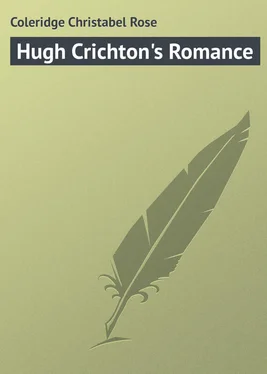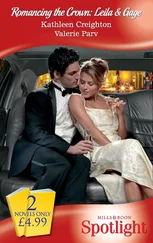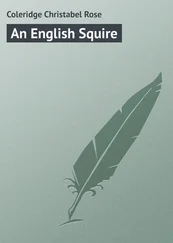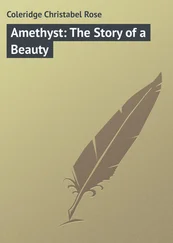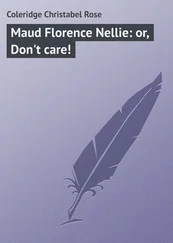Christabel Coleridge - Hugh Crichton's Romance
Здесь есть возможность читать онлайн «Christabel Coleridge - Hugh Crichton's Romance» — ознакомительный отрывок электронной книги совершенно бесплатно, а после прочтения отрывка купить полную версию. В некоторых случаях можно слушать аудио, скачать через торрент в формате fb2 и присутствует краткое содержание. Издательство: Иностранный паблик, Жанр: foreign_prose, на английском языке. Описание произведения, (предисловие) а так же отзывы посетителей доступны на портале библиотеки ЛибКат.
- Название:Hugh Crichton's Romance
- Автор:
- Издательство:Иностранный паблик
- Жанр:
- Год:неизвестен
- ISBN:нет данных
- Рейтинг книги:4 / 5. Голосов: 1
-
Избранное:Добавить в избранное
- Отзывы:
-
Ваша оценка:
- 80
- 1
- 2
- 3
- 4
- 5
Hugh Crichton's Romance: краткое содержание, описание и аннотация
Предлагаем к чтению аннотацию, описание, краткое содержание или предисловие (зависит от того, что написал сам автор книги «Hugh Crichton's Romance»). Если вы не нашли необходимую информацию о книге — напишите в комментариях, мы постараемся отыскать её.
Hugh Crichton's Romance — читать онлайн ознакомительный отрывок
Ниже представлен текст книги, разбитый по страницам. Система сохранения места последней прочитанной страницы, позволяет с удобством читать онлайн бесплатно книгу «Hugh Crichton's Romance», без необходимости каждый раз заново искать на чём Вы остановились. Поставьте закладку, и сможете в любой момент перейти на страницу, на которой закончили чтение.
Интервал:
Закладка:
“Well, there are more words than hers and Arthur’s to that,” said Clarissa.
“Mrs Crichton never objects to anything,” said Flossy; “and as for Mr Crichton, surely he won’t be so horrid.”
“Well, I could not help it,” said Miss Venning.
“No,” returned Flossy; “and as Mysie is not exactly a girl it doesn’t signify.”
Mysie was eighteen and a week; but Flossy used the term “girl” in a strictly technical sense.
“Dear me!” she continued, “my class will be waiting for me.” And as she ran into the house Miss Venning looked after her.
“I think young men have very strange tastes,” she said.
“Because Flossy has no lovers?” said Clarissa, with a slight emphasis.
“Well, I am sure I do not want her to have any,” returned Miss Venning, with a smile at her sisterly partiality.
“Dear me, no, Mary! Flossy won’t be fit for a lover for five years at least. She has all the world to reform first!”
Miss Venning laughed as she went to tend her beautiful roses, and Clarissa, left alone, wandered on till she sat down under an acacia tree. She threw herself back on the soft turf, and gazed up at the sky through its veil of delicate dancing foliage, while she caught the fast-falling white blossoms in her hand. It was a childish attitude and a childish action; but it may have been absently done, for she was still smiling at the joke of the surprised lovers. At last the smile trembled and ceased, and she hid her face on the mossy turf. Lying there on the grass, with her little slim figure and curly head, she looked like a girl escaped from school, fretting over her tasks or dreaming of fairy princes. But Miss Clarissa was twenty-eight, and a schoolmistress; and had tasks to set instead of to learn, and no lovers to dream of, past, present, or future. So she soon sat upright, brushed off the acacia blossoms, and went into the house to get ready for tea.
Meanwhile, Flossy had taken her way to the long sunny school-room, where sat some twelve or fifteen girls reading Wilhelm Tell with the German governess – all, save one or two, evincing in tone, look, or manner a conviction that German and hot afternoons were incompatible elements. There was a little brightening as Miss Florence paused on her way to the dining-room, where her own class of younger ones were preparing their lessons. Mysie sat with her clear eyes fixed on her book, her soft round face pinker than usual, her little figure very still, her pencil in her hand. Was she taking notes of the lesson?
“Have you written out your translation, Mysie?” said Flossy, mischievously.
“No, Miss Florence,” said Mysie, in formal school-girl fashion; but she could hardly restrain her little quivering smile.
“These young ladies are idle, Miss Florence,” said their teacher.
“That is very wrong of them,” returned Flossy. “There is only one excuse for being idle – ” then, as Mysie looked up with a start, she added, “the hot weather.”
Neither romance not hot weather interfered with Miss Florence’s energy over her German lesson, and the sleepy little schoolgirls had small chance with their brisk young teacher. A bell rang, Flossy fired a concluding question at the sleepiest and stupidest, extracted an entirely wrong answer, and, but slightly disconcerted – for was not she used to it? – ran off to her room, arranged her dress, stuck a great red rose in her hair, and came down to tea.
Miss Florence was much admired by her pupils, and had a sort of half-sympathetic, half-genial pleasure in their admiration. Besides, her rose was as a flag to celebrate the festal occurrence of the afternoon. “I always like to wear pretty things when I feel jolly,” she would say; “and if ever you see me going about in a drab dress and a brown veil you may be quite sure I’ve had a disappointment!”
“Then,” said Clarissa, “if you buy that very pink silk I shall think you have had an offer.”
“Oh, no; think I don’t want one.”
Flossy crushed her rose under a big straw hat, when she was set free after tea, and took her way merrily along the fields to Redhurst. The way was very pretty, and the evening lights very charming; but Flossy scurried along, much too full of human nature to care for any other. She had been half playfellow and half teacher to Mysie for years, and had grown up in familiar intercourse with all the household, and was on terms with Arthur of mutual lecturing and teasing.
Redhurst was a square, red house, with white facings; and stood in the midst of pretty, park-like meadows, through which ran the shallow, sedge-grown river, which, nearer Oxley, merged in the sleepy canal. The garden came down to the river’s brim, and great white fierce swans and little furry black ducks swam up and down under the willows. The field-path led to an old white stone bridge, looking like a small model of one of those over the Thames, and across it Flossy came into the garden which led up to a terrace and steps in front of the house. So far the garden was rather stiff and old-fashioned, but croquet hoops profaned the soft turf, garden chairs and a tea-table enlivened the terrace; a girl of fifteen, with a mane of dark rusty hair, stood on the step, and a lady was sitting in the most comfortable of the chairs above her.
Mrs Spencer Crichton was as like her son Hugh as a stout, cheerful-looking lady of eight-and-forty can be to a grave young man of eight-and-twenty. She was pale and handsome and fair, and hardly looked her age, so smooth was her brow, so contented her mouth, so ready the smiles that came with equal kindliness for all the young ones who had grown up under her easy sway. It was said that the young people at Redhurst were sadly spoiled – spoiled, that is to say, not by being the objects of devoted affection or too partial admiration, but by being allowed their own way to an extent incredible to more idealistic mothers. Whether from the absence of any very marked individual affections, or from something of the same cast of mind that produced in her eldest son such even-handed justice, she not only treated all her young kinsfolk with the same kindness, but, so far as they knew, felt for them much the same amount of interest. She did not think it incredible that Arthur should surpass James; or that, in the few contentions that crossed their sunshiny life, Hugh should sometimes be mistaken. All were sure of a kind judgment, and often of a sense of the rights of their story: none of them made a demand for an exclusive or individual tenderness; for their bringing-up had made them independent. Mrs Crichton did not trouble herself much as to whether their idiosyncrasies were suitable or desirable or likely to lead to any one result. It was all right that Hugh should keep to his business; she did not wish that James was as fond of books as Arthur, since he preferred Art and a great deal of conversation. George preferred rats and rabbits to either. “Well, poor George did not like his lessons.” Mysie liked needlework, and flowers, and Sunday schools – “so good of little Mysie.” Frederica thought happiness consisted in a day’s hunting. “She was growing up quite a different sort of girl.” But Mrs Crichton was not at all surprised when George got flogged at school for not knowing the lessons, observing “that George was so stupid he was always in scrapes;” and when Frederica pouted, sobbed, and scowled when some special friend called her a Tom-boy she only heard: “But you are a Tom-boy, my dear,” as consolation. And when in young enthusiasm, anyone brought his or her special hobby into notice, he or she well knew that, though that hobby might prance unrebuked through the family circle, it was regarded as nothing but “so-and-so’s hobby,” whether it concerned the destinies of the human race or the best way of laying-out flower-beds. There are two sides to everything. It is very pleasant never to be scolded; but when Hugh had laid down some law in a way that bore heavily on his juniors, it was not always quite pleasant to hear his mother placidly say: “My dear, don’t resist, it’s Hugh’s way to be particular” – as if Hugh’s way, and not the thing itself, were all that mattered. Still, light hearts and good tempers had resulted from the kindly, peaceable rule, and the young Spencers lived their own lives and took each other for granted. Hugh might hope that his little Italian song-bird might be accepted as “Hugh’s way,” and Arthur and Mysie need fear no opposition, either tyrannical or conscientious, little as the necessity of each to the other’s life might be realised.
Читать дальшеИнтервал:
Закладка:
Похожие книги на «Hugh Crichton's Romance»
Представляем Вашему вниманию похожие книги на «Hugh Crichton's Romance» списком для выбора. Мы отобрали схожую по названию и смыслу литературу в надежде предоставить читателям больше вариантов отыскать новые, интересные, ещё непрочитанные произведения.
Обсуждение, отзывы о книге «Hugh Crichton's Romance» и просто собственные мнения читателей. Оставьте ваши комментарии, напишите, что Вы думаете о произведении, его смысле или главных героях. Укажите что конкретно понравилось, а что нет, и почему Вы так считаете.
